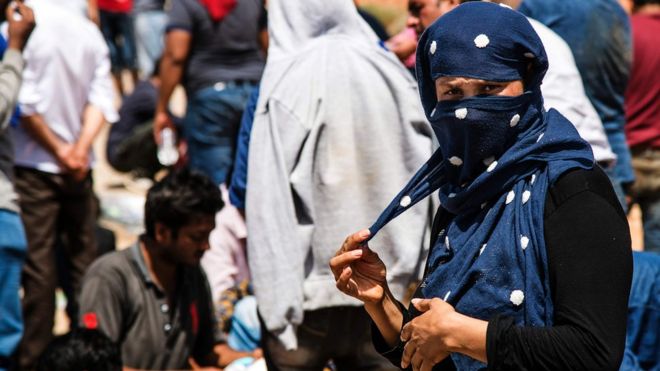 Until recently few migrants had arrived on Crete
Until recently few migrants had arrived on Crete
Migrant crisis
Italy-Austria row over migrant crossing
About 340 people have been rescued from a migrant boat that capsized in the Mediterranean Sea, Greek officials say.
Four ships, helicopters and aeroplanes are engaged in rescue operations, a coastguard spokesman said.
Others are thought to be missing from the boat which was found in international waters, 75 nautical miles south of the Greek island of Crete.
In a separate incident, "more than 100 bodies" were recovered off the coast of Libya, the AP news agency said.
The local head of the International Organisation for Migration Daniel Esdras told the BBC that the capsized vessel off Crete was a 25-metre boat that can typically carry at least 700 people.
Officials have said they believe the boat "left from Africa" though it is still not clear from where.
Friday's incident is likely to deepen concerns about a new smuggling route, one that could bring more tragedies at sea, following the closure of the Balkan route from Greece to Turkey in March.
It marks the second time this week that migrants have had to be rescued in waters off the Greek coast.
An improvement in weather conditions has led to an upsurge in the numbers of boats crossing the Mediterranean.
Migrant arrivals to Greece
156,574
arrivals by sea in 2016, up to 1 June
376 died on Turkey-Greece route
52,871 persons of concern in Greece
856,723 arrivals in 2015
Source: IOM
Getty Images
The UN said this week that more than 2,500 people had died in 2016 trying to make the journey towards Western Europe.
Until the border closure, hundreds of thousands of migrants - many of them refugees from the Syrian civil war - streamed north through Greece, heading for Germany via the Balkans.
But border controls have since been tightened, leaving many asylum seekers stranded in Greece.
The EU has also struck a deal with Turkey to stem the flow of people risking their lives on flimsy boats crossing to Greece's Aegean islands.
In the past week the focus has switched to the central Mediterranean, because of a surge in the numbers of migrants making the long, perilous voyage from Libya to Lampedusa and Sicily. Italy and its EU partners are struggling to shut down the route.
No comments:
Post a Comment